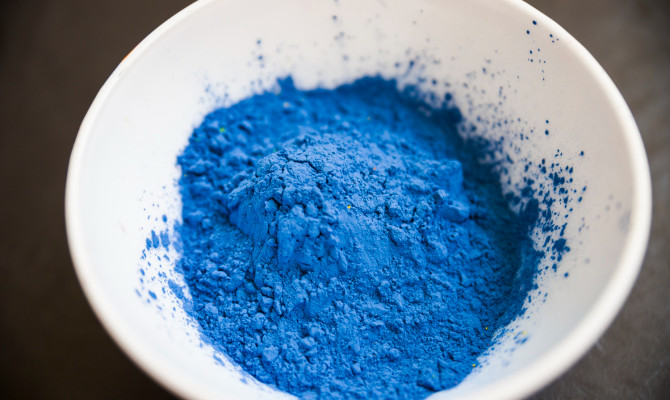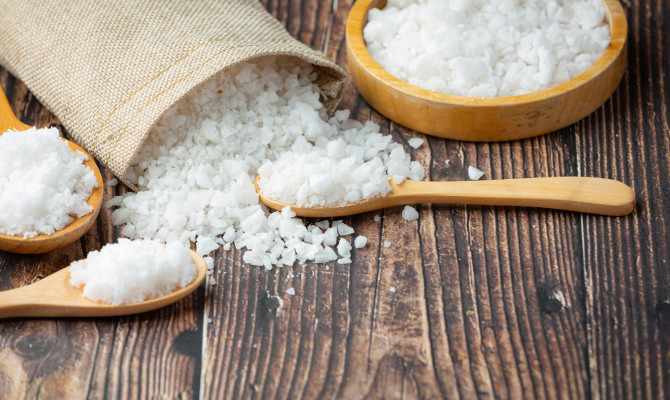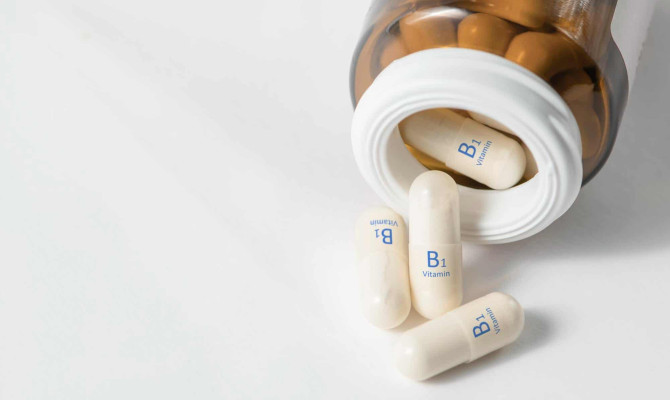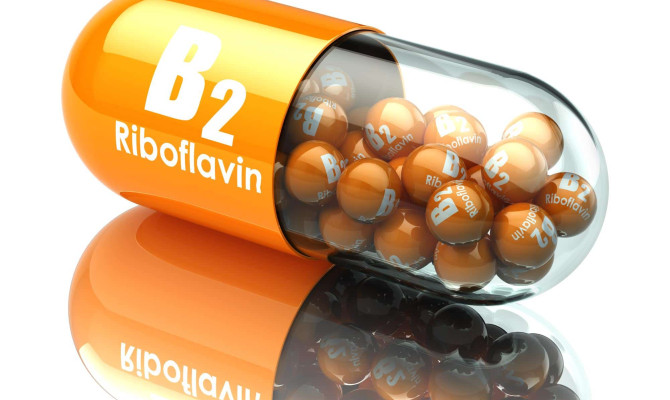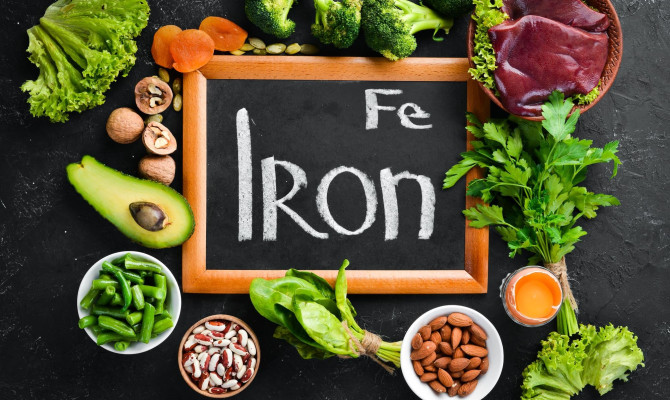Zinc: What do I need to know?

- Zinc
- 16 Aug 2023
Overview
What is Zinc?
Zinc is an essential mineral nutrient present in minimal amounts in our bodies. Zinc cannot be produced or stored in our bodies. It is present naturally in various plants and animal foods. It is essential in many health processes, such as cell growth, immune response, and skin health.
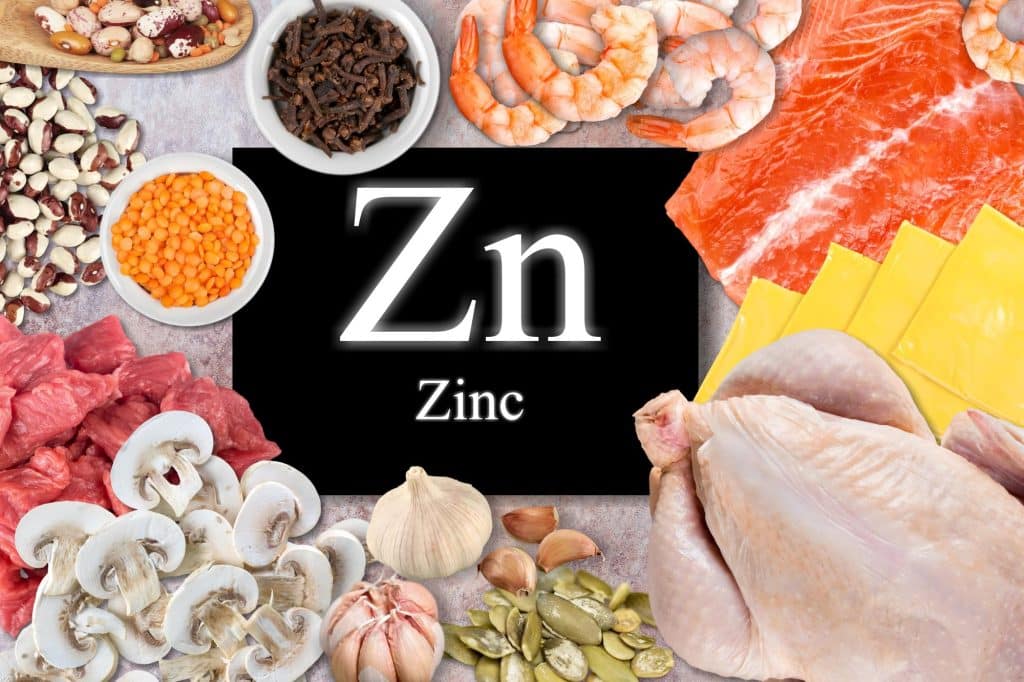
Facts of zinc
- Zinc is the most widespread mineral present in our body next to iron
- Since ancient times, zinc has been used as a traditional medicine to treat various illnesses, such as healing wounds, growth, and reproduction.
- High doses of zinc might cause copper deficiency
- Severe zinc deficiency is sparse in developed countries 1Overview| Researched based study from Nlm.nih.gov , 2Overview| Researched based study from Sciencedirect.com .
Sources
Sources of zinc
Plant Sources
- Asparagus
- Peas
- Mushrooms
- Kale
- Beet greens
- Black beans
- Kidney beans
- Chickpeas
- Brown rice
- Oats
- Pumpkin seeds
- Cashews
- Fortified breakfast cereals
Animal sources
- Beef
- Lamp
- Pork
- Salmon
- Sardine
- Oysters
- Mussels
- Crab
- Lobster
- Chicken
- Turkey
- Eggs
- Milk
- Cheese
- Yogurt 3Sources| Researched based study from Sciencedirect.com
Dosage
Dosage of zinc
The daily recommended dietary intake of zinc for different age groups is as follows:
Infants
- Age 0 – 6 months- 2 mg (milligrams)
- Age 7 months -12 months- 3 mg
Children
- Age 1-3 years-3 mg
- Age 4-8 years-5 mg
- Age 9-13 years-8mg
Adolescent
Age 14-18 years
- Male- 11mg
- Female-9 mg
Adults
Age 19 years and above
- Male- 11 mg
- Female- 8mg
Pregnant woman
- Age below 19 years-12mg
- Age 19 years and above-11mg
Nursing mothers
- Age below 19 years-13mg
- Age 19 years and above-12mg 4Dosage| Researched based study from Sciencedirect.com
Benefits
Benefits of Zinc in our Body
Important for vital functions
- It helps in deoxyribonucleic acid (DNA) and protein production
- It is involved in the activity of around 300 enzymes required for various processes in our body, such as digestion, body metabolism, and nerve functions.
- It is essential for the sensing of smell and taste.
- It helps develop and function the body’s immune cells 5Benefits| Researched based study from Nlm.nih.gov
Health benefits of zinc are
Helps in wound healing
- Zinc decreases pain and size of the sores
- It helps in quick recovery 6Benefits| Researched based study from Nlm.nih.gov
Helps treat acne
- Zinc inhibits the P. acne (Propionibacterium acne) bacterial growth
- It suppresses the oil gland activity
- It reduces pain and swelling 7Benefits| Researched based study from Nlm.nih.gov
Reduces inflammation
- Zinc decreases oxidative stress in the body
- It reduces the levels of inflammatory proteins in the body 8Benefits| Researched based study from Nlm.nih.gov
Enhances the immune system
- Zinc improves the body’s ability to fight infections
- It reduces the risk of infections 9Benefits| Researched based study from Nlm.nih.gov
Decreases the risk of age-related diseases
- Zinc enhances the immune cells viz; T-cells and natural killer cells of our body.
- It nullifies the free radicals and reduces the body’s oxidative stress 10Benefits| Researched based study from Nlm.nih.gov
Prevents chronic diseases
- Zinc help prevent the metabolic syndrome
Metabolic syndrome is a group of conditions for heart diseases such as diabetes and high blood pressure.
- It alleviates the body’s oxidative stress 11Benefits| Researched based study from Nlm.nih.gov
Prevents macular degeneration, Macular degeneration is an eye disease that blurs the vision 12Benefits| Researched based study from Nei.nih.gov
- Zinc inhibits the destruction of the retina cells
- It slows the age-related macular degeneration
Prevents osteoporosis
- Zinc helps in bone formation
- It reduces the risk of bone fractures 13Benefits| Researched based study from Nlm.nih.gov
Improves sexual health in males
- It helps maintain the testosterone hormone in male
- It supports the lining of the male reproductive organ 14Benefits| Researched based study from Nlm.nih.gov
Improves neurological symptoms
- Zinc improved pain, limb weakness, and coordination problems
However, more is warranted to validate the effect of zinc 15Benefits| Researched based study from Neurology.org
Helps in common cold
- Zinc helps the immune cells to fight germs
- It helps in shortening the duration of the common cold 16Benefits| Researched based study from Nlm.nih.gov
Side effects
Side effects of zinc
- Nausea and vomiting
- Headache
- Indigestion
- Diarrhea
Overdose
Overdose toxicity of Zinc
- Headaches
- Nausea and vomiting
- Lightheadedness
- Appetite loss
- Abdominal pain
- Indigestion
- Diarrhea
- Coordination problem (inability of the brain to send instructions to carry out body functions)
- Extreme weakness in arms, feet, and legs
- Loss of sensation
Overdose of zinc can lead to the following bodily changes
- Alteration in the body’s iron functioning
- Decrease in the body’s immune response
- Decrease in the levels of the body’s good cholesterol
- Decrease in the body’s copper levels 17Benefits| Researched based study from Nlm.nih.gov
Deficiency
Deficiency of Zinc
Deficiency symptoms of zinc
- Extreme weight loss
- Hair loss
- Difficulty in concentration
- Eye problem
- Sores around the mouth
- Skin lesions
- Change in taste
- Depression
- Diarrhea
- Frequent infections
- Sexual dysfunction
- Fertility problems
- Delayed wound healing
- Delayed growth
- Delayed sexual development 18Deficiency| Researched based study from Sciencedirect.com
Deficiency reasons for zinc
Insufficient consumption of zinc in diet can lead to zinc deficiency.
Risk People for zinc deficiency
- People on a vegetarian diet ( as vegetarian proteins like legumes obstruct proper zinc absorption)
- Breastfed infants older than six months(as mother’s milk does not contain adequate for baby’s over six months)
- People with Crohn’s disease (swelling of the digestive tract that causes problems in vitamin and mineral absorption)
- People with Ulcerative colitis (swelling in the lining of the large intestine causes nutrient absorption problems)
- People addicted to alcohol(Excess alcohol hampers the body’s zinc absorption capacity)
- People with sickle cell anemia( as red blood cells are continuously broken, losing zinc)
- Pregnant women ( as they require more zinc for the development of the growing fetus)
- Nursing mothers(as they require more zinc to make milk) 19Deficiency| Researched based study from Nlm.nih.gov .
Interactions
Interactions of zinc
Tetracycline antibiotics
- Zinc decreases the blood levels of tetracycline. Taking tetracycline might reduce the effectiveness of the drug.
- So, tetracycline must be taken 2 hours before or 5 to 6 hours after zinc consumption.
Quinolone antibiotics
- Zinc decreases the body’s ability to absorb antibiotics. Taking zinc and quinolone together might reduce the efficiency of the drug.
- So, quinolone must be taken 2 hours before or 6 hours after zinc consumption.
Penicillamine
- Zinc decreases the blood levels of penicillamine. Taking zinc and penicillamine together might reduce the effect of the drug.
- So, zinc must be taken 2 hours before or 2 hours after penicillamine consumption.
Cisplatin
- Cisplatin is a medicine used for cancer treatment
- So taking zinc and cisplatin together might disable the cisplatin’s effect
Ritonavir
- Ritonavir is a medicine used for HIV infection
- Taking zinc and ritonavir together might decrease the body’s ability to absorb ritonavir.
Cephalexin
- Zinc decreases the body’s ability to absorb cephalexin. Taking zinc and cephalexin together reduces the drug’s effectiveness.
- So one must consume zinc 3 hours later than cephalexin consumption.
HIV/AIDS medication
- Taking zinc and HIV medication together might reduce the blood levels of HIV medications and might reduce the drug’s effectiveness.
Atazanavir
- Taking zinc and atazanavir together might reduce the body’s ability to absorb atazanavir. It reduces the efficiency of the drug.
Amiloride
- Amiloride increases the zinc level in the body.
- Taking zinc and amiloride together might make the zinc levels in the body too high 20Interactions| Researched based study from Nlm.nih.gov
Zinc interaction with other health supplements
Magnesium supplement
- Taking a multivitamin with iron, zinc, and magnesium supplement together decreases the absorption of iron and zinc in the body
- It reduces the efficiency of the multivitamin supplement 21Interactions| Researched based study from Nlm.nih.gov
Iron supplements
- Iron supplements decrease the absorption of magnesium, manganese, copper, and zinc in the body 22Interactions| Researched based study from Nlm.nih.gov
Takeaway
Key Takeaways
- Zinc is an essential mineral playing a chief role in various life processes, and deficiency can cause serious health issues.
- Consuming a balanced diet can prevent one from zinc deficiency
- Zinc supplements are available in health stores for people with zinc deficiency
- One must consult a physician before including zinc supplements in their diet to get the correct dose and to prevent overdose toxicity
Any feedback on this article?
 This Articles content was accurate
This Articles content was accurate Very Informative Article
Very Informative Article I have a question or a comment
I have a question or a comment
 This article contains inaccurate content
This article contains inaccurate content This article was not helpful
This article was not helpful I have a question or a comment
I have a question or a comment
We appreciate your helpful feedback!
Checkout our social pages
References
-
National Library of Medicine
Zinc and its importance for human health: An integrative review | Overview
-
Science Direct
Zinc: An Essential Trace Element for the Elderly | Overview
-
Science Direct
Zinc | Sources
-
Science Direct
Dietary vs. pharmacological doses of zinc: A clinical review | Dosage
-
National Library of Medicine
Recent aspects of the effects of zinc on human health | Benefits
-
National Library of Medicine
The effects of zinc supplementation on wound healing and metabolic status in patients with diabetic foot ulcer: A randomized, double-blind, placebo-controlled trial | Benefits
-
National Library of Medicine
The role of zinc in the treatment of acne: A review of the literature | Benefits
-
National Library of Medicine
Clinical effectiveness of zinc supplementation on the biomarkers of oxidative stress: A systematic review and meta-analysis of randomized controlled trials | Benefits
-
National Library of Medicine
The immune system and the impact of zinc during aging | Benefits
-
National Library of Medicine
Lessons Learned from Experimental Human Model of Zinc Deficiency | Benefits
-
National Library of Medicine
Zinc status is associated with inflammation, oxidative stress, lipid, and glucose metabolism | Benefits
-
National Eye Institute
Antioxidant Vitamins and Zinc Reduce Risk of Vision Loss from Age-Related Macular Degeneration | Benefits
-
National Library of Medicine
Zinc as a Therapeutic Agent in Bone Regeneration | Benefits
-
National Library of Medicine
Zinc is an Essential Element for Male Fertility: A Review of Zn Roles in Men’s Health, Germination, Sperm Quality, and Fertilization | Benefits
-
Neurology
Neurological Symptoms in Patients with Zinc deficiency: A Case Series with Documented Blood Levels | Benefits
-
National Library of Medicine
Zinc for the prevention or treatment of acute viral respiratory tract infections in adults: a rapid systematic review and meta-analysis of randomised controlled trials | Benefits
-
National Library of Medicine
Zinc Toxicity | Overdose
-
Science Direct
Discovery of Human Zinc Deficiency: Its Impact on Human Health and Disease | Deficiency
-
National Library of Medicine
Zinc deficiency | Deficiency
-
National Library of Medicine
Interaction of Zn(II) with quinolone drugs: structure and biological evaluation | Interaction
-
National Library of Medicine
Magnesium Sulfate | Interactions
-
National Library of Medicine
Calcium supplementation: effect on iron absorption | Interaction













